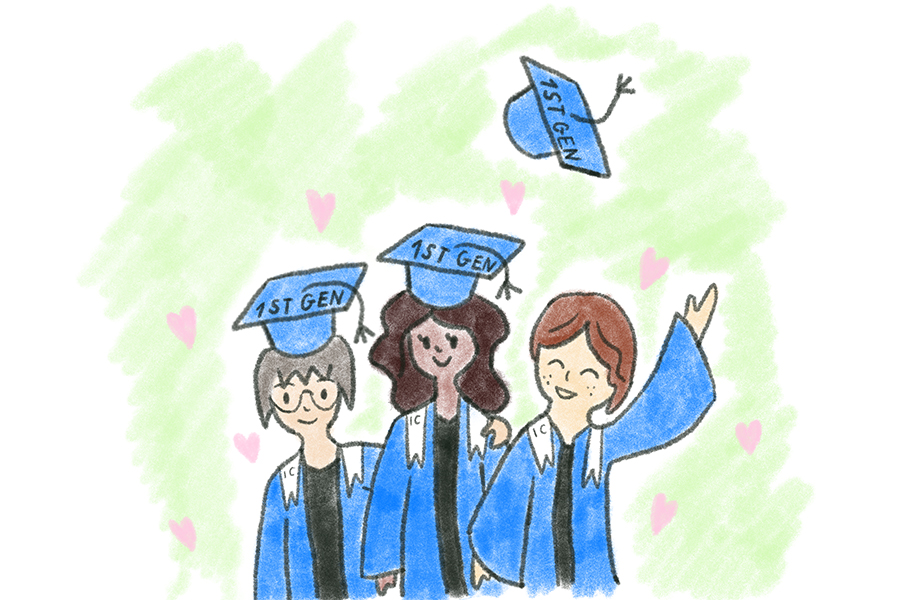Since 2019, Ithaca College has received First-Generation Forward status from NASPA, Student Affairs Administrators in Higher Education. It is essential that Ithaca College support first-generation students and foster their ability to find community at the college.
Students with at least one parent who has received a bachelor’s degree from a higher education institution — in other words, non-first-generation students — have a distinct advantage in achieving academic success over first-generation students. They have someone in their life who knows what it takes to get into college, to succeed in college and to eventually earn a degree. This person can provide students with guidance and support and equip them for academic success. Because first-generation students do not have this advantage at home, it is essential that the college provide this resource and bridge the gap — and it appears that they are doing so.
The college, and specifically the First-Generation Center, have taken many steps to support first-generation college students and these must continue to grow. It is inspiring to see that programs target different elements of first-gen students’ success, including the need to build connections with students of similar backgrounds, to receive advice from professors — especially first-generation professors — and to promote their unique academic successes through programs like Alpha Alpha Alpha honors society.
Being able to go to college or to not go to college creates a cyclical trend; according to Best Colleges, about 37% of students in degree programs were defined as first-gen in 2016, many came from lower-income households and only 26% of first-generation students received a degree. This is compared to 82% of college students with two parents with at least a bachelor’s degree receiving a bachelor’s degree. It is important for institutions like Ithaca College to support their students, especially first-generation students in finding academic success, and help to break cycles. By offering and growing these programs, the college can help first-generation students start new trends of graduating with a bachelor’s degree and continuing on to support future generations in doing so.








